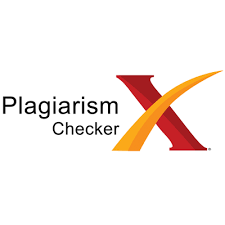EXPLORING THE IMPLEMENTATION OF ONLINE LEARNING PROGRAM FROM THE PERSPECTIVE OF LEARNERS IN REMOTE AREA
Abstract
Abstract: This research is intended to explore the students who follow the online learning programzso called Recognition of Prior Learning in Remote Area. Qualitative descriptive method was conducted to gain the data the findings. After spread the questionnaire as instrument of the study, the result show that students’ motivation must be maintained after first meeting of the class, students’ autonomous learning does not activated automatically even the teachers use online learning platform; teachers’ instruction must be vividly stated that there are instruction that insist them to open the platform outside the learning period. Students’ English proficiency also seems do not show positive vibe. Stakeholder of the program are advised to do training on the lecturer before running the program in remote area; to mitigate the discrepancy of the learning system in platform used. Teachers are boosted to have a clear instruction to mitigate time and space constraint in learning activities.
Keywords: , online learning, students’ perceptionsFull Text:
PDFReferences
Aini, Q., Budiarto, M., & Putra, P. O. H. 2020. Exploring E-learning Challenges During the Global COVID-19 Pandemic: A Review. Jurnal Sistem Informasi (Journal of Information System), 16(2), 57–65.
Cakrawati, L. M. 2017. Students' Perceptions on The Use of Online Learning Platforms in EFL Classroom. English Language Teaching and Technology Journal (ELT-Tech Journal), 1(1), 22 – 30. http://ejournal.upi.edu/index.php/ELTTech/article/view/9428
Chien, H.-Y., Kwok, O.-M., Yeh, Y.-C., Sweany, N.W., Baek, E., & McIntosh, W. 2020. Identifying at-risk online learners by psychological variables using machine learning techniques. Online Learning. 24(4), 131-146. https://doi.org/10.24059/olj.v24i4.2320
Coman C, Țiru LG, Meseșan-Schmitz L, Stanciu C. & Bularca MC. 2020. Online Teaching and Learning in Higher Education during the Coronavirus Pandemic: Students’ Perspective. Sustainability. 12(24):10367. https://doi.org/10.3390/su122410367
Farrah, M. & Al-Bakry, G. H. 2020. Online learning for EFL students in Palestinian universities during corona pandemic: Advantages, challenges and solutions. Indonesian Journal of Learning and Instruction, 3(2), 65-78. https://doi.org/10.25134/ijli.v3i2.3677
Harmer, Jeremy. 2000. The Practice of English language Teaching. Essex, UK: Pearson
Education Limited.
Kumi-Yeboah, A., Sallar, A.W., Kiramba, L.K., & Kim., Y. 2020. Exploring the use of digital technologies from the perspective of diverse learners in online learning environments. Online Learning, 24(4), 42-63. https://doi.org/10.24059/olj.v24i4.2323
Leary, H., Dopp, C., Turley, C., Cheney, M., Simmons, Z., Graham, C.R., & Hatch, R. 2020. Professional development for online teaching: A literature review. Online Learning, 24(4), 254-275. https://doi.org/10.24059/olj.v24i4.2198
Rahmawati, F. 2016. E-Learning Implementation: Its Opportunities and Drawbacks Perceived by EFL Students. Journal of Foreign Language, Teaching & Learning, 1(1), 1-15
Shi, Xue. 2016. A Comparative Study of E-learning Platform in Reading and Translating Course for Engineering Students. International journal of Emerging Technologies in Learning. 11 (4), 120-125. http://dx.doi.org/10.3991/ijet.v11i04.5551
Surayatika, D. 2019. The Effectiveness of E-Learning as Teaching Media in EFL Classroom. Jurnal Bahasa Dan Sastra, 8(1), 1-7
Yuniarti, W. 2014. Utilizing Learning Platform for Paperless Classroom. Vision: Journal for Language and Foreign Language Learning, 3(2), 105-124. http://dx.doi.org/10.21580/vjv3i2295
Zimmerman, W., Altman, B., Simunich, B., Shattuck, K., & Burch, B. 2020. Evaluating online course quality: A study on implementation of course quality standards. Online Learning, 24(4), 147-163. https://doi.org/10.24059/olj.v24i4.2325
DOI: http://dx.doi.org/10.17977/um046v5i12021p23-29
Refbacks
- There are currently no refbacks.
Copyright (c) 2021 J-ELLiT (Journal of English Language, Literature, and Teaching)
Editorial and Administration Office:
This Journal is published and managed by Department of English, Faculty of Letters, Universitas Negeri Malang.
Jl. Semarang No. 5, Malang, Indonesia.
Phone. (0341) 551312.
Homepage: http://journal2.um.ac.id/index.php/jellit/index
email: jellit.journal@um.ac.id
P-ISSN: 2580-670X
E-ISSN: 2580-9687
This work is licensed under a Creative Commons Attribution 4.0 International License.
Cover designed by Rahmati P. Yaniafari









